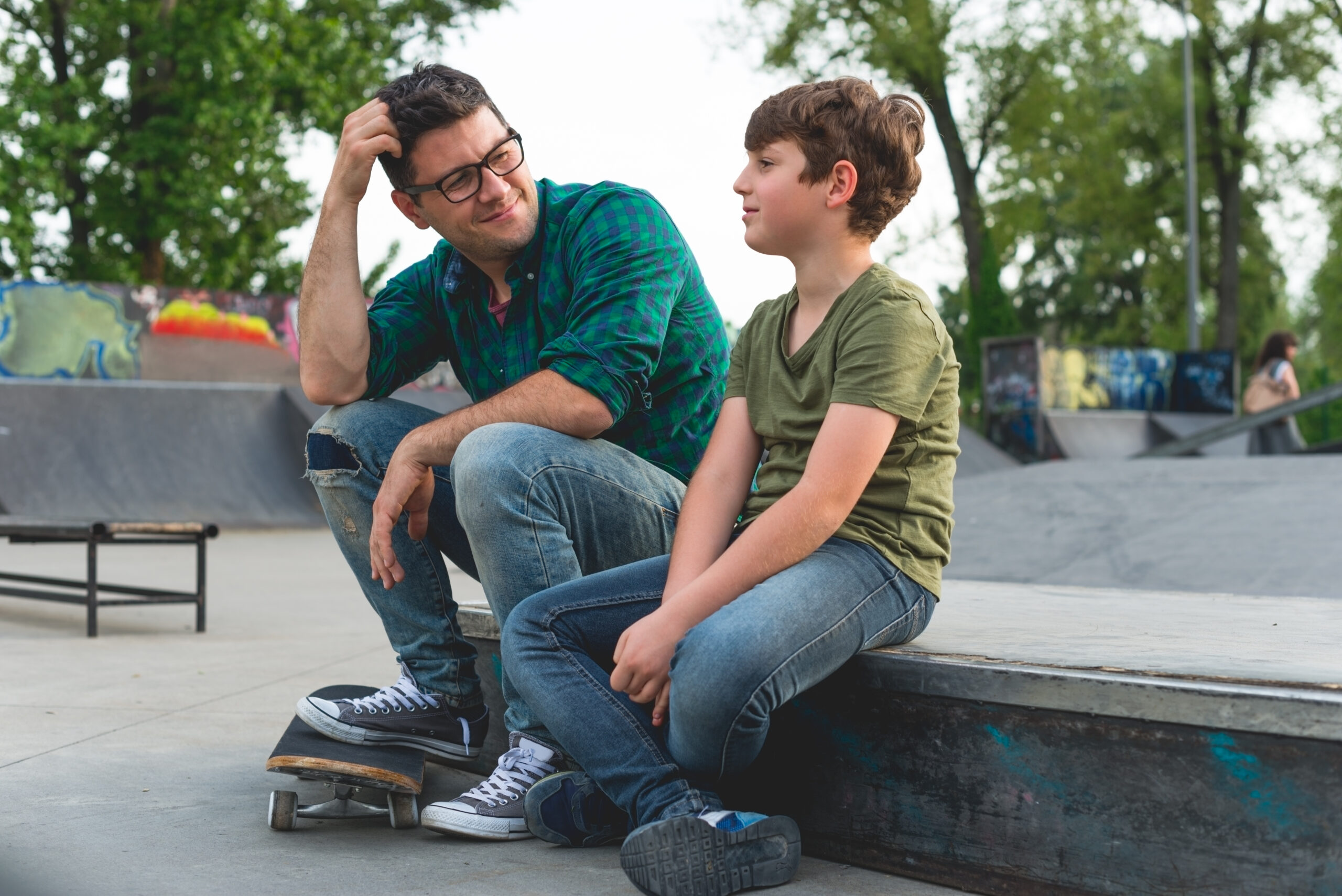By Olivia Clinton, Health Advocate, Finger Lakes Community Health
 Is there a perfect time to talk to your kids and loved ones about important topics like relationships and sexual health? Yes, sexual health. Often not an easy topic to talk about with adults let alone kids but it’s surely an important one.
Is there a perfect time to talk to your kids and loved ones about important topics like relationships and sexual health? Yes, sexual health. Often not an easy topic to talk about with adults let alone kids but it’s surely an important one.
We want to use this article to help make it easier for you to talk with youth about their sexual activity, health, body image, and so much more. Often referred to as the “Let’s Talk” campaign which is geared towards helping parents and adults understand why it is just as important to talk to youth about their homework or hobbies as it is to talk to them about reproductive health.
Why should you talk with youth?
It’s important to communicate with youth about sexuality, including their relationships, body image, gender, and sexual orientation, and prevent both pregnancy and sexually transmitted infections. These topics are important because research shows that kids and teens who have regular conversations with their parents or caregivers about sex and relationships are less likely to take risks with their sexual health. It is never too late to start having these discussions and preparing the youth in your life for future relationships and encounters.
And it’s not just about sex and relationships. Body image is tied to self-confidence and youth often over-focus on what they look like. How could they not with social media and images of “perfect people?” You can help youth accept their body as it is. Nobody is perfect and everybody wants to be liked and accepted just as they are.
media and images of “perfect people?” You can help youth accept their body as it is. Nobody is perfect and everybody wants to be liked and accepted just as they are.
It’s a privilege to talk with youth, that’s what we do!
As Finger Lakes Community Health Advocates, we have the privilege to go into many schools to educate youth on healthy relationships, STIs, pregnancy prevention, and so much more. Typically, we work with young people between the ages of 14 to 21 but occasionally meet with a group of 12–14-year-olds.
We take a proactive approach. We teach lessons on how to identify if a relationship is healthy or how to protect yourself or sexually transmitted infections. In 2020, over half (53%) of reported cases of STIs were among adolescents and young adults aged 15–24 years according to the CDC.
When attending after-school programs, we allow the students to discuss the topics that mean the most to them and then tailor our education to the topic of interest. This works well with young people as they are getting information about topics they are interested in. This approach makes youth feel empowered by choosing what is important to them. We allow time at the end of the program for questions, and the youth have our phone numbers if they think of a question after the event or are not comfortable asking in a group setting.
You can talk with the youth in your life too!
As health advocates, we use games or interactive lessons for youth to feel included in the lesson. Youth respond well to these programs and always have an abundance of questions that need to be answered. It is great that we can go to schools and have these difficult and sometimes awkward conversations, but we are not the only ones who should be doing this. Other adults in these youths’ lives like teachers, parents, guardians, or aunts and uncles need to be having these conversations at home too. It can be awkward talking to young people about sex and relationships, but it is necessary for young people to have these important conversations with knowledgeable older individuals.
How do you begin?
It’s not easy to talk to youth especially when they’re your loved ones. Here are a few tips when having a difficult conversation. Start by listening, really listening when they talk to you. Avoid angry or impatient body language. Stay positive.
Take a moment to talk with youth when there is a convenient moment like watching a TV show or listening to music. Ask them questions like “What do you think about this situation?” “Is it healthy?” Also don’t assume that when they ask a question that they are actually doing it. If they ask you about birth control or their period, simply answer the question. Often, they are just looking for the answer and don’t know where to turn. Be that resource for them. Don’t wait to have the “sex talk.”
These are just a few ways to engage in more productive talks with the kids in your life.
If you’d like to know more about this topic, contact me, at 315-719-3518.


